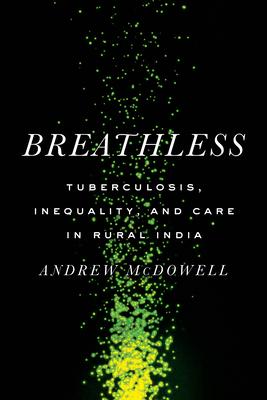Each year in India more than two million people fall sick with tuberculosis (TB), an infectious, airborne, and potentially deadly lung disease. The country accounts for almost 30 percent of all TB cases worldwide and well above a third of global deaths from it. Because TB's prevalence also indicates unfulfilled development promises, its control is an important issue of national concern, wrapped up in questions of postcolonial governance. Drawing on long-term ethnographic engagement with a village in North India and its TB epidemic, Andrew McDowell tells the stories of socially marginalized Dalit ("ex-untouchable") farming families afflicted by TB, and the nurses, doctors, quacks, mediums, and mystics who care for them. Each of the book's chapters centers on a material or metaphorical substance-such as dust, clouds, and ghosts-to understand how breath and airborne illness entangle biological and social life in everyday acts of care for the self, for others, and for the environment.
From this raft of stories about the ways people make sense of and struggle with troubled breath, McDowell develops a philosophy and phenomenology of breathing that attends to medical systems, patient care, and health justice. He theorizes that breath-as an intersection between person and world-provides a unique perspective on public health and inequality. Breath is deeply intimate and personal, but also shared and distributed. Through it all, Breathless traces the multivalent relations that breath engenders between people, environments, social worlds, and microbes.
